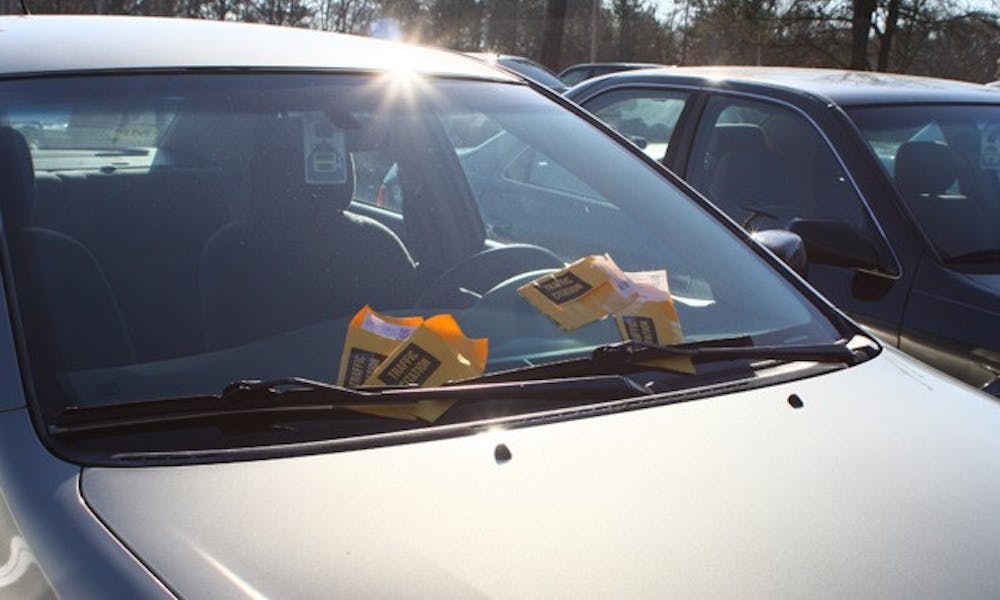Carmen Jo Ponce will not graduate from Duke Law until 2011, but that has not stopped her from trying to change a city’s laws.
The laws she wants to change concern “predatory towing,” a term usually meant as criticism of towing companies that remove vehicles from private lots and then demand cash payments for their release.
An incident with a tower that cost her $150 first piqued Jo Ponce’s interest in the topic. Jo Ponce said she and her friends had dinner at a Mexican restaurant in town, but walked outside a few minutes later to find a tower about to place a boot on her car.
“He replied that I was parked in a private parking lot,” she said. “They had one sign, but it was dark and the sign was placed in the corner of the parking lot, so I couldn’t see it.”
This experience and her subsequent research into Durham’s policies and those of surrounding cities convinced her that Durham’s regulations were lacking.
“I found that Durham’s ordinance was written in a way that enriched towing companies and gave them wide discretion in the fees they assessed,” Jo Ponce said.
She compared Durham’s laws to those in Asheville, Chapel Hill, Charlotte and Raleigh, according to a news release. She found seven areas in which those cities’ ordinances were designed to be more fair than Durham’s laws, such as requiring private parking lot owners to set up signs indicating tow zones and specific times towing is enforced, as well as contact information for the towing company. She presented her findings to the Durham City Council during a Nov. 19, 2009 work session.
Partly as a result of this session, City Council’s towing committee decided to examine Durham’s regulations on towing.
“The towing committee is the first and logical step,” City Council member Eugene Brown said. “We’ll see what kind of response Carmen’s investigation gets from that. It’s out of my hands now. She did the research, and I think some of my colleagues were surprised by the extent of the problem.”
Brown said Carmen could, at least, count on his support.
“Carmen was towed even though there was no sign,” he said. “I’ve done thorough research on this topic too, and suggested she do a comparative analysis, which she did with other cities. It appears that our statute as it exists now is tilted more toward predatory towing than it should be.”
But the towing committee may not be able to meet for a while, City Council member Howard Clement said. Clement, who is heading the committee, said it was having trouble scheduling a meeting with Jo Ponce because she is not currently in town, adding that he is extremely concerned about the issue and wants to resolve it as soon as possible. Jo Ponce acknowledged that the towing committee’s meeting might need to be postponed because of her unavailability.
“[Clement] is waiting to hold the meeting until I’m able to be there, since now I’m in Washington D.C.,” she said. “He wants me to give a detailed presentation on my research in front of the whole committee and the towing industry.”
Although Jo Ponce is directly involved with City Council, she is not the first person to have problems with towing companies in Durham.
“This is not without precedent at all,” Clement said. “I’ve been chair of the towing committee a number of years, and there have been problems before.”
But not all Durham residents think the city needs to change its regulations.
“I haven’t had any drastic things happen,” said Mike Thomas, a Durham resident. “Once I got a ticket for parking, which might have been excessive, but I wasn’t towed.”
Get The Chronicle straight to your inbox
Signup for our weekly newsletter. Cancel at any time.

